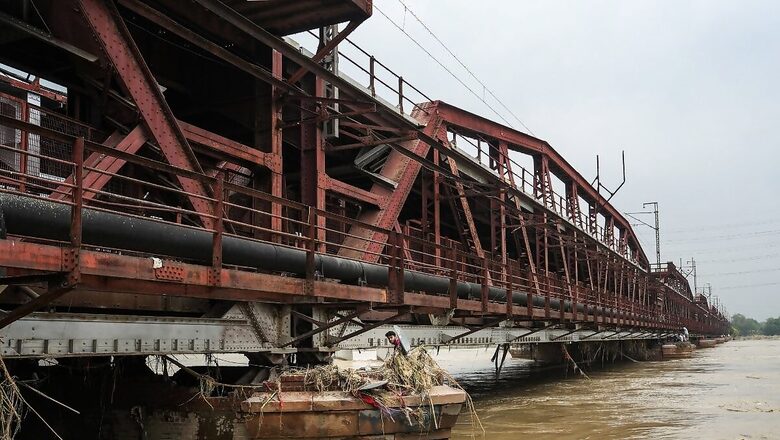
views
Puja Devi (47) visited the area along the Yamuna river multiple times in the past 15 days in the hope that the water that inundated her home will have receded. But every time her hopes are dashed and she returns to the relief camp dejected.
Now, she fears that she will not be able to return to her humble home after officials told them that their shanties were “illegal”.
They will not be allowed to return even after the water reduces, they were told.
While living under constant fear of losing their home, the abysmal conditions at the relief camp are causing further hardship for the family of 14.
Puja Devi has been living at the relief camp since July 11.
“The meals we get are half-cooked most of the time. It would be better if the government provided us with ration instead of half-cooked food,” Puja Devi alleged.
She had been living along the Yamuna’s bank for decades with her 10 children, husband and mother-in-law, dependent on the agricultural land for sustenance.
The family was forced to vacate the area when water entered her home and destroyed the small agricultural land where she cultivated vegetables.
At 208.66 metres on July 13, the Yamuna surpassed its previous record of 207.49 metres set in September 1978 by a significant margin. It breached embankments and penetrated deeper into the city than it has in more than four decades.
The consequences of the floods have been devastating, with more than 27,000 people evacuated from their homes. The losses incurred in terms of property, businesses and earnings have run into crores.
The Yamuna in Delhi flowed more than a metre above the danger mark of 205.33 metres on Monday morning.
Puja Devi and her family are not the only ones suffering.
Kali Charan, a 44-year-old daily-wage worker, said his wife Sandhya Devi fell while being evacuated and is now suffering from a severe pain in her leg.
“The medicines that we are getting are not working properly. I don’t have the money to provide proper treatment to my wife,” he added.
Om Prakash, a 30-year-old father of three, said, “There are no jobs, I have no clue how I will earn my livelihood.” He also mentioned that the food and water at the camps are not regular and sometimes they have to sleep on an empty stomach. His children are unable to attend school as their books, bags and uniforms were washed away in the flood.
“I am not sure if I will get my land back but I request the government to let us stay here. We are poor people and we have nowhere to go. At least by farming here, we earn some amount to feed our families,” he said.
The increase in the river’s water level is expected to impact the ongoing relief and rehabilitation work in the flood-affected low-lying areas of the capital, officials said.
Experts attributed the unprecedented flooding in Delhi to encroachment on the river floodplain, extreme rainfall within a short time, and silt accumulation that has raised the riverbed.




















Comments
0 comment